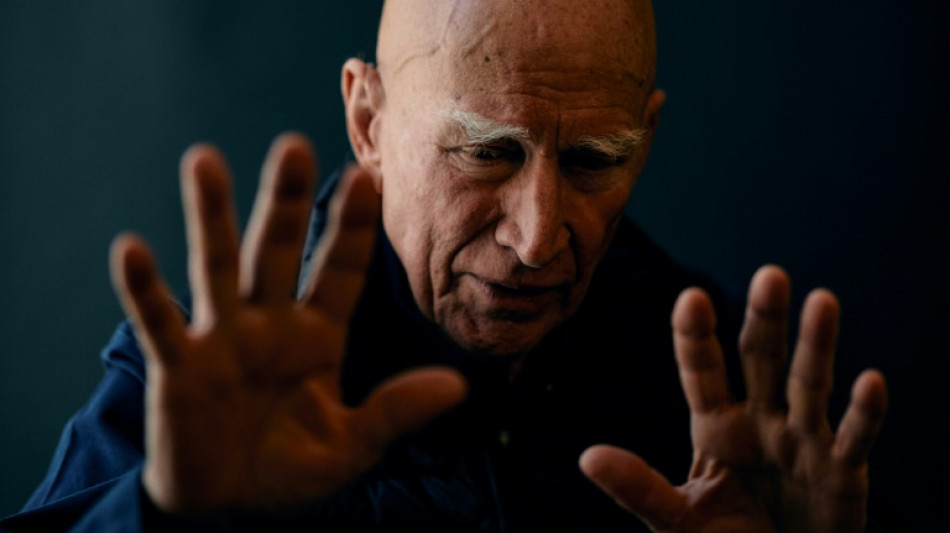
French-Brazilian photographer Sebastiao Salgado dies aged 81: French Academy of Fine Arts

French-Brazilian photographer Sebastiao Salgado, famed for his immense body of work depicting wildlife, landscapes and people around the world, died Friday aged 81, announced the French Academy of Fine Arts, of which he was a member.
The academy said it was "deeply saddened to announce the death... of Sebastiao Salgado", describing him as a "great witness to the human condition and the state of the planet".
It was his large black-and-white photographs of subjects such as conflicts or the Amazon rainforest that won Salgado the greatest fame and adorned calendars, books and the walls of his fans around the world.
Critics accused him of beautifying suffering but Salgado never veered from his aesthetic or his work.
"A photographer who travelled the world constantly, he contracted a particular form of malaria in 2010, in Indonesia," his family said in a statement to AFP.
"Fifteen years later, the complications of this disease developed into severe leukaemia, which took his life," they added.
- 'Emblematic figure' -
Brazil's President Luiz Inacio Lula da Silva described his compatriot as "one of the best... photographers the world has given us".
Lula, who learned the news of Salgado's passing at an official event in Brasilia with Angolan counterpart Joao Lourenco, asked attendees to observed a minute's silence for the photographer.
Paris-based media rights campaigners Reporters Without Borders (RSF) paid tribute to an "emblematic figure of documentary photography".
"A photographer of all records, Sebastiao Salgado was a keen observer of mankind and nature," it added in a statement online.
RSF noted that Salgado had contributed 100 of his own photos to one of the albums it sells to raise money for it works.
UNESCO Secretary General Audrey Azoulay saluted "an immense photographer, artist and documentarist whose talent captured the ecological and anthropological upheavals of our era.
"His art raised public awareness of often unknown realities such as those of the Amazon and its indigenous peoples," she added in posts to social media.
- 'Way of life' -
The photographer leaves a unique legacy of images from his hundreds of journeys through the Amazon rainforest and across the planet, from Rwanda to Indonesia, from Guatemala to Bangladesh, capturing with his lens human tragedies such as famine, wars and mass exoduses.
Salgado conceived photography as "a powerful language to try to establish better relationships between humans and nature", said the French Academy of Fine Arts.
He worked almost exclusively in black and white, which he saw as both an interpretation of reality and a way of conveying the fundamental dignity of humanity.
Active in the left-wing student movements of the turbulent 1960s, he studied economics and in 1969, he and his wife, Lelia Wanick, fled to France to escape Brazil's military dictatorship. He went on to receive French citizenship.
His photos of drought and famine in countries such as Niger and Ethiopia landed him a job at renowned photo agency Magnum in 1979.
Photography "is a way of life," he told AFP in 2022, on a trip to Sao Paulo to present his exhibition "Amazonia," the product of seven years shooting the world's biggest rainforest.
A dedicated climate activist, he was a fierce critic of Brazilian President Jair Bolsonaro (2019-2022) for the far-right leader's push to open the Amazon to agribusiness and mining.
Salgado also founded an environmental organisation called Instituto Terra to revive disappearing forests in his home state, Minas Gerais, a successful project joined by more than 3,000 landowners.
G.Aguilar--HdM

 London
London

 Manchester
Manchester
 Glasgow
Glasgow
 Dublin
Dublin
 Belfast
Belfast
 Washington
Washington
 Denver
Denver
 Atlanta
Atlanta
 Dallas
Dallas
 Houston Texas
Houston Texas
 New Orleans
New Orleans
 El Paso
El Paso
 Phoenix
Phoenix
 Los Angeles
Los Angeles



